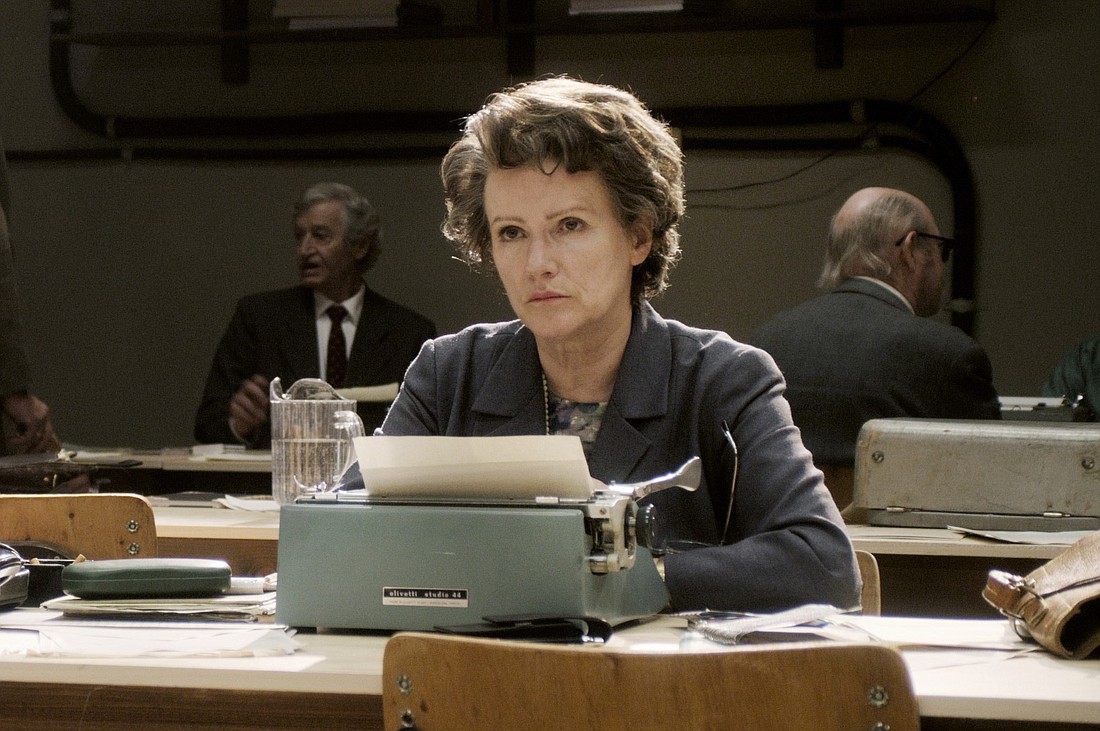- January 2, 2025
-
-
Loading

Loading

Great films can change the way we perceive the world and those who inhabit it. "Hannah Arendt" is one such film. In 1961, the renown philosopher and political theorist shocked the world with her concept of "the banality of evil" in describing the Holocaust perpetrators.
When the New Yorker magazine accepted Arendt's (Barbara Sukowa) proposal to cover Nazi Adolf Eichmann's trial in Palestine, she viewed it as an extraordinary opportunity. A Jew herself, she narrowly escaped the death camps and emigrated to America. One would think that her observations on the trial would lean toward viewing Eichmann as a monster. Not so.
The Nazi responsible for transporting the Jews to concentration camps was, in her eyes, "a nobody obliged to follow orders." His real crime was being weak and not a great thinker. But even more disturbing was Arendt pointed out that some Jewish leaders were complicit in war crimes by collaborating with the Germans.
Her five articles published in the New Yorker generated massive condemnation. Her close friends and colleagues abandon Arendt when she refused to back down. She was asked to resign her teaching position at The New School (which she brazenly refused) and received death threats. Despite the outrage, Arendt's unwavering beliefs, and the courage to stand up for them, prevailed.
Director Margarethe von Trotta manages to masterfully construct a film about complex ideologies into a brilliantly engrossing watch. She utilizes archival footage from the trial which includes the caged Eichmann arrogantly smirking at his accusers. It's one of the most frightening images you'll ever witness on screen.
Sukowa delivers a powerful performance as the brave and insightful philosopher. Her relationships with friends (including a wonderful Janet McTeer) and her beloved husband (Axel Milberg) are excellently portrayed in almost sharp contrast to her politics. She pulls it off with sheer fluidity and finesse. It's an Oscar worthy depiction of an unforgettable woman.
"Hannah Arendt" is a film full of lessons. Take heed because they're as important as they are controversial. When Arendt explains that "trying to understand is not to be forgiving," it speaks volumes. But, moreover, the film implores that when we allow others to think for us, it's a recipe for disaster.